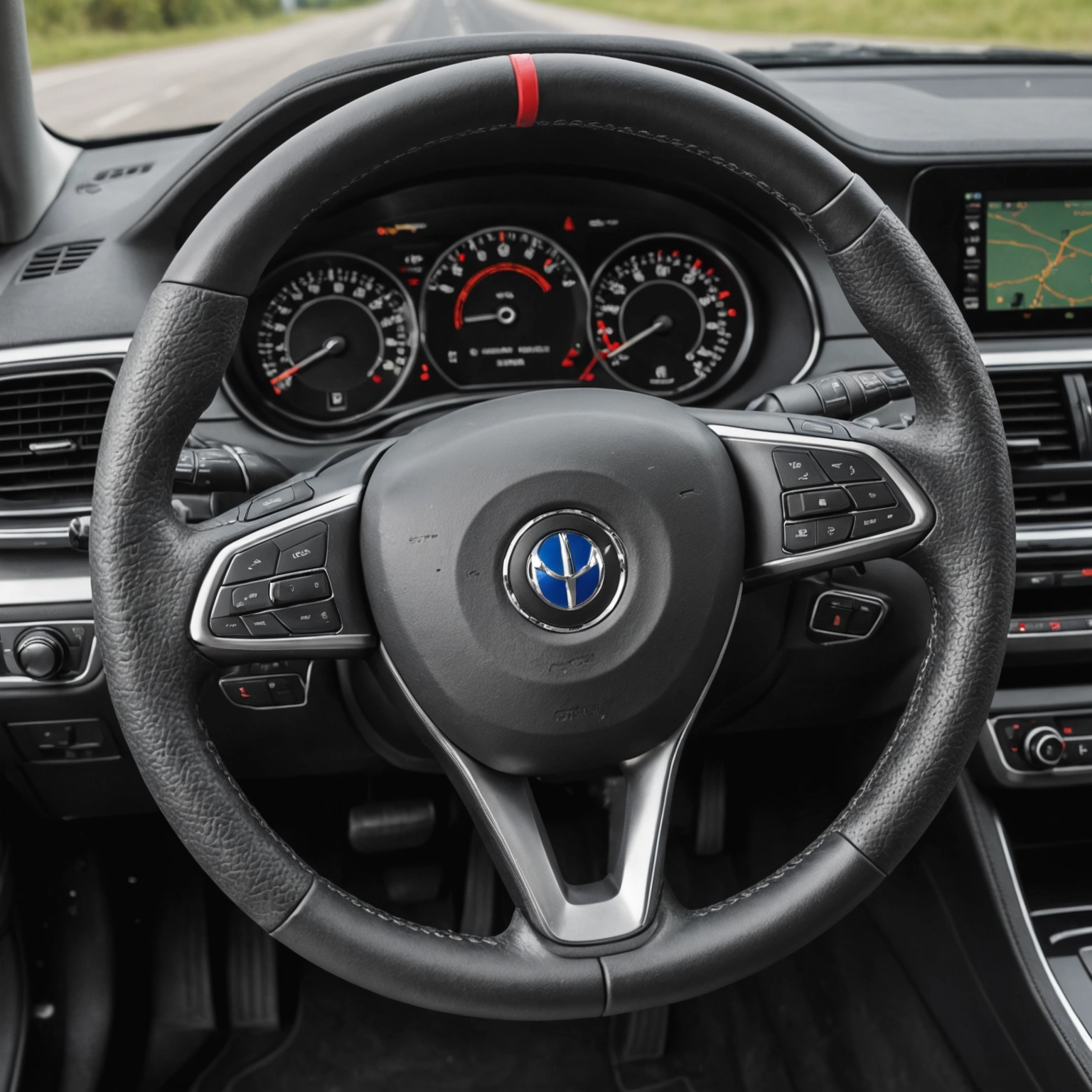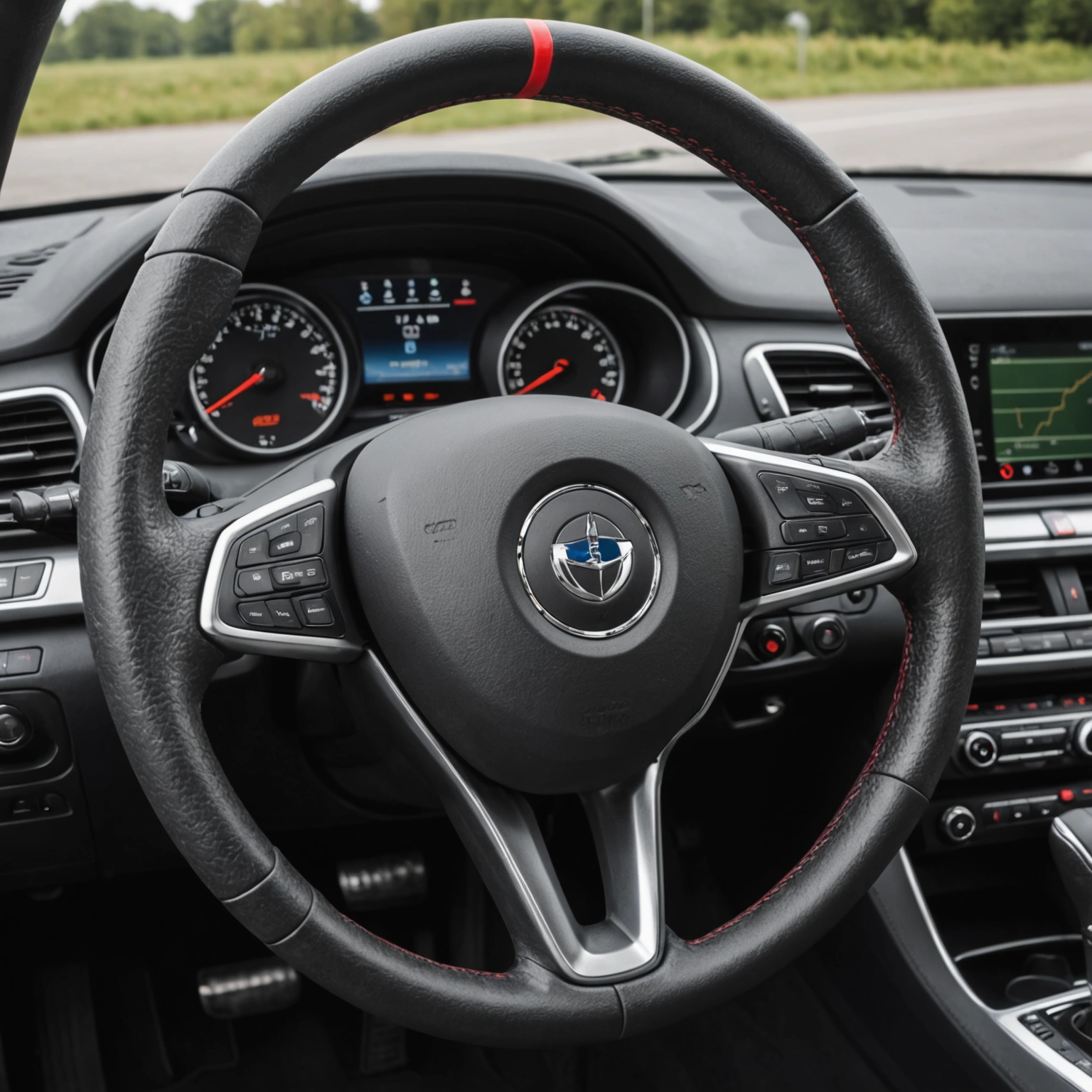**Understanding Why Your Car’s Steering Wheel Shakes at High Speeds**
If you’ve ever experienced your steering wheel vibrating or shaking while driving at high speeds, you’re not alone. This common issue can be unsettling and sometimes concerning, but understanding the causes can help you identify the problem and know when to seek professional assistance. Let’s explore the main reasons why your steering wheel might shake at high speeds and what you can do about it.

### Common Causes of Steering Wheel Vibration at High Speeds
#### 1. **Wheel Imbalance**

One of the most frequent causes is wheel imbalance. When the tires and wheels are not properly balanced, it can lead to vibrations that become noticeable at higher speeds. This happens because the weight distribution around the wheel isn’t even, causing it to wobble as it spins.
**Solution:** Have your wheels balanced by a professional. Regular balancing, especially after new tire installations or repairs, can prevent this issue.

#### 2. **Uneven or Worn Tires**
Tires with uneven tread wear, cuts, or bulges can cause vibrations. Sometimes, tires may develop irregularities over time due to improper inflation, misalignment, or suspension issues.

**Solution:** Inspect your tires regularly. Replace worn or damaged tires and ensure they are properly inflated according to the manufacturer’s specifications.
#### 3. **Misaligned Wheels**
Wheel alignment affects how your vehicle handles and can influence vibrations. Misalignment causes tires to wear unevenly and can lead to steering wheel shake at high speeds.
**Solution:** Schedule a wheel alignment service. Proper alignment ensures even tire wear and smoother driving.
#### 4. **Suspension and Steering Components**
Worn or damaged suspension parts like ball joints, tie rods, or control arms can cause instability and vibrations. These components are critical for maintaining proper wheel alignment and vehicle handling.
**Solution:** Have a mechanic inspect your suspension system. Replacing worn components can restore stability and eliminate shaking.
#### 5. **Brake System Issues**
Though less common at high speeds, warped brake rotors can cause steering wheel vibrations when braking. However, in some cases, warped rotors may also cause mild vibrations while driving at high speeds, especially if they are severely warped.
**Solution:** If you notice vibrations primarily when braking, have your brake system inspected and replace warped rotors as needed.
#### 6. **Brake Calipers and Wheel Bearings**
Defective wheel bearings can cause vibrations that increase with speed. Similarly, sticking or malfunctioning brake calipers can lead to uneven braking forces, indirectly causing steering issues.
**Solution:** Professional inspection and replacement of faulty wheel bearings or calipers are recommended.
### Preventive Measures and Tips
– **Regular Maintenance:** Routine tire rotations, balancing, and alignments help prevent issues.
– **Proper Tire Care:** Maintain correct tire pressure and replace tires when tread is worn.
– **Suspension Checks:** Have your suspension system inspected periodically, especially if you notice any handling problems.
– **Drive Carefully:** Avoid hitting potholes or curbs, which can damage wheels and suspension components.
### When to See a Professional
If your steering wheel continues to shake despite tire balancing and alignment, or if you notice abnormal tire wear, vibrations during braking, or any unusual handling characteristics, it’s time to consult a qualified mechanic. Early diagnosis and repair can prevent further damage and ensure your safety on the road.
—
**In Summary:**
Your car’s steering wheel shaking at high speeds is usually caused by wheel imbalance, tire issues, misalignment, or suspension components. Regular maintenance and inspections are key to preventing these problems. If you experience persistent vibrations, don’t delay—getting professional help will keep your vehicle running smoothly and safely.
—
**Stay safe and enjoy a smooth ride!**

